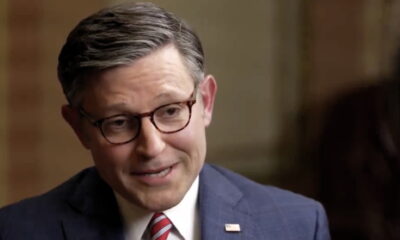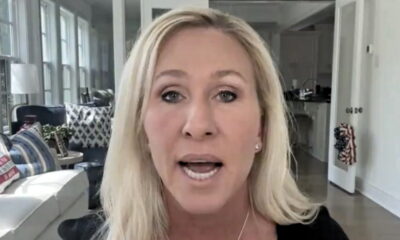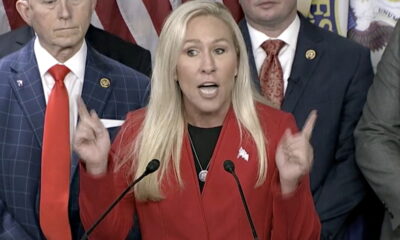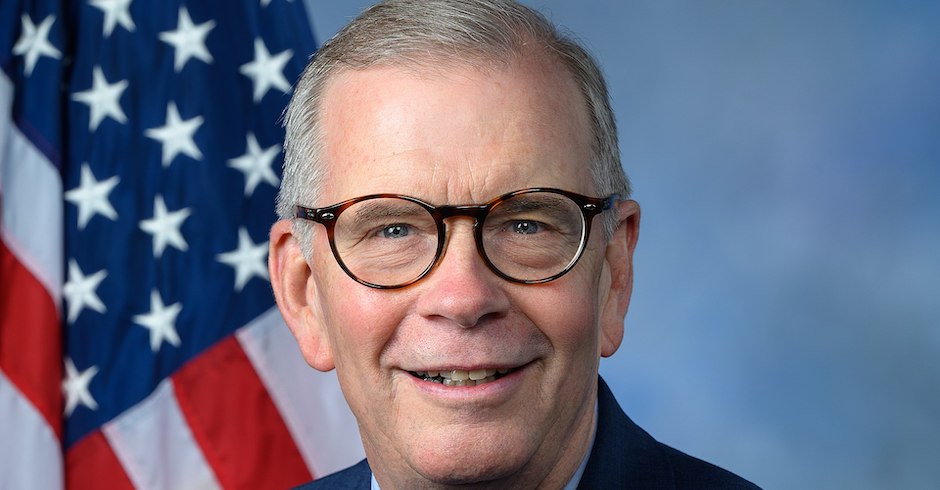RELIGIOUS EXTREMISM
Here’s How Christian Fundamentalist Homeschooling Actually Hurts Kids

My interest in homeschooling was first sparked nearly 20 years ago, when I was a socially awkward adolescent with a chaotic family life. I became close to a conservative Christian homeschooling family that seemed perfect in every way. Through my connection to this family, I was introduced to a whole world of conservative Christian homeschoolers, some of whom we would now consider “Quiverfull” families: homeschooling conservatives who eschew any form of family planning and choose instead to “trust God” with matters related to procreation.
Though I fell out of touch with my homeschooled friends as we grew older, a few years ago, I reconnected with a few ex-Quiverfull peers on a new support blog called No Longer Quivering. Poring over their stories, I was shocked to find so many tales of gross educational neglect. I don’t merely mean that they had received what I now view as an overly politicized education with huge gaps, for example, in American history, evolution or sexuality. Rather, what disturbed me were the many stories about homeschoolers who were barely literate when they graduated, or whose math and science education had never extended much past middle school.
Take Vyckie Garrison, an ex-Quiverfull mother of seven who, in 2008, enrolled her six school-age children in public school after 18 years of teaching them at home. Garrison, who started the No Longer Quivering blog, says her near-constant pregnancies – which tended to result either in miscarriages or life-threatening deliveries – took a toll on her body and depleted her energy. She wasn’t able to devote enough time and energy to homeschooling to ensure a quality education for each child. And she says the lack of regulation in Nebraska, where the family lived, “allowed us to get away with some really shoddy homeschooling for a lot of years.”
“I’ll admit it,” she confesses. “Because I was so overwhelmed with my life… It was a real struggle to do the basics, so it didn’t take long for my kids to fall far behind. One of my daughters could not read at 11 years old.”
At the time, Garrison was taking parenting advice from Quiverfull leaders who deemphasized academic achievement in favor of family values. She remembers one Quiverfull leader saying, “If they can do mathematics perfectly but they have no morals, you have failed them.”
The implication, she says, was that, “if they’re not doing so well academically, well, then they can catch up on that later. It’s not such a big deal. It was a really convenient way of thinking for me because I wasn’t able to keep up anyway.” This kind of rhetoric, Garrison notes, provided a “high-minded justification for educational neglect. I would not have gotten away with that if I’d had to get my kids tested every year.”
Over time, Garrison lost faith in her fundamentalist ideology and became aware that her children’s education was being neglected. Eventually all but one of her six younger children ended up entering and excelling in the public school system.
Why did she stick with homeschooling for so long, despite her difficulties? “We were convinced that it would be better for our kids not to have an education than to be educated to become humanists or atheists and to reject God,” Garrison says. “We became so isolated because the Quiverfull lifestyle was so overwhelming we didn’t have time or energy for socialization. So the only people we knew were exactly like us. We were told that the whole point of public school was to dumb down the children and turn them into compliant workers – to brainwash them and indoctrinate them into this godless way of thinking.”
Garrison believes that homeschooling has become so popular with fundamentalist Christians because, “there is an atmosphere of real terror among some evangelicals. They are horrified by the fact that Obama is president, and they see the New Atheist movement as a vocal, in-your-face threat. Plus, they are obsessed with the End Times, and believe that the Apocalypse could happen any day now…They see a demon on every corner.
“We homeschooled because we wanted to protect our children from what we viewed as the total secularization of America. We listened to people like Rush Limbaugh, who told us that America was in the clutches of evil liberal feminist atheists.”
*
Just how common are stories like Vyckie Garrison’s? Unfortunately, it’s hard to know. The federal government only maintains very broad demographic statistics about homeschoolers in this country; federal data only keeps track of what kinds of people are homeschooling and why. You can find plenty of information about homeschoolers according to race, family income or highest education obtained by the parents. But as regards neglect related to homeschooling? The government cannot tell you — and there is no systematic state-by-state record of the percentage of truancy convictions (possibly the best measure of educational neglect at present) that involve homeschooling families versus those involving enrolled students and/or their parents.
Capturing that kind of data is essential to understanding the scope of this problem, but getting real numbers will always be complicated by the fact that many homeschooling families choose not to comply with the law by submitting to state homeschool regulations, or even report their homeschool activity to the state. While it’s possible that some forget, others intentionally fail to report because they fear too much government intervention in their lives. For many conservative Christians, this is a key aspect of their decision not to report.
Given the scarcity of numbers on this issue, the best one can hope for at this point is anecdotal information about the problem. But because homeschooling is such a highly politicized issue, it is often difficult to get a clear sense of what is happening from homeschooling parents themselves. And because many parents see themselves as advocates of homeschooling, they are not always very eager to discuss potential gaps in homeschooling education.
Luckily, more than a few adult homeschool graduates are eager to talk. And as I talk to more and more people who recount first-person stories of homeschool-related neglect, it becomes hard to write off what homeschool advocates would call “exceptions” simply as fringe outliers.
Erika Diegel Martin’s story is particularly haunting. A homeschooling graduate of the mid-1990s, and an ex-Quiverfull daughter I have known for many years, Diegel Martin was pulled out of public school at 14. Because she was old enough to remember several years of public schooling, she says she never really believed her parents’ dire warnings about it. Her younger brothers were another story. “When the school bus would come by, my youngest brother would go, ‘There goes the prison bus.’ Our parents had them believing that public schools were these horrible places, just dens of iniquity.”
The narrative about public schools, she says, went something like this: “How would you like to get stuck in a building with no light – and secular, godless, atheist teachers for seven hours of the day without even being able to see your parents or go out to play?” As a result, she says, “My brothers were terrified of the public schools.”
Like Garrison, Diegel Martin recounts notable educational gaps in her own family, where there was little academic encouragement. One of her brothers decided to quit school at 16 and faced no parental opposition. The youngest, Diegel Martin says, ceased his formal education at the age of 12, when she left home and was no longer available to teach him herself. And though she was fortunate enough to receive sex education before leaving public school, her siblings were not so lucky. Their parents never taught the three other children about sex, and Diegel Martin remembers giving her 21-year-old sister “the talk” the week before she got married. She also had to intervene to ensure that her younger brothers learned about sex.
As for herself, when she completed her schooling, she says her parents did not allow her to obtain her GED as proof of high school graduation. Their reason? “The girls weren’t allowed to get a GED because we were told we wouldn’t need it. It would open up opportunities that were forbidden to us. We would work in the family business until we got married, and then become homemakers.
“When I talked about wanting to go to college, my parents said, ‘Well, you’re a girl. You don’t go to college.’”
Melinda Palmer, 29, is another homeschool graduate who is forthcoming about the problems she encountered as a homeschooled child. She had no experience of public education, and quickly came to fear it. Her father cast the local school as a corrupt example of the dangerous world outside the home. The family’s isolationism created an environment in which everyone was so terrified of the outside they saw no choice but to submit to her father’s abusive rule for many years. She says they had come to believe that the tyranny of their father was preferable to what might await them on the outside.
The oldest of eight children, Palmer grew up in an extremely conservative family that ultimately went entirely off the grid. They lived in a rural country home in Vermont without running water or electricity. Though she says homeschooling started out with good enough intentions, it ultimately fell by the wayside, in part because of the sheer amount of work it took to subsist in Vermont without basic amenities while also maintaining the large family’s produce and livestock. It took so much time and energy to complete each day’s chores that they rarely had enough time to study.
Though she says all of the children in her family are literate, she tells me that, in math, she never made it past the start of pre-algebra, and that she has not yet obtained her GED. Since leaving the Quiverfull movement, she has found success as an artisanal cheese-maker, but many opportunities remain unavailable to her because of her upbringing. She speaks hopefully of continuing her schooling at some point, but feels self-conscious about working toward the GED at 29, when some of her younger sisters have already earned theirs. “I study and read things all the time,” she says, “but I haven’t done anything official yet.”
Palmer insists that her family was not alone in homeschool neglect. Among the various fundamentalist families that ran in her family’s social circles, she says, “I knew several families whose children were not very literate.” Moreover, she points out, education is “more than just learning math and science and the facts of history – it’s learning how to interact with the kids around you, and figuring out what different kinds of personalities bring to life.
“You can do homeschooling right if you’re very careful,” she acknowledges. “Know all the ways it can go wrong and guard against these; have outside interaction; get help with what you need help with and use a decent curriculum.” But most homeschoolers, Palmer points out, “are woefully lacking in every area” of their education.
Palmer sends me a note after we talk that reads, “I know of a family right now in pretty much the exact same situation we were in back then. They reported [their homeschooling status] to the state once, eight years ago, and never after that, to my knowledge. The state never caught on… They are one of the families I know whose children are functionally illiterate. Their 18-year-old daughter can read, but can barely write a paragraph… and the education goes significantly downhill from there. Her youngest brother, almost 11, has barely learned to read.”
I follow up to find out if anyone has reported the family to social services. She says they have been reported, but very little has changed.
*
Still, this is not to say there aren’t many homeschooling parents who are doing an excellent job of ensuring that their children receive a quality education. Most parents realize they are taking on a tremendous amount of responsibility when they commit to homeschooling a child, so I am not surprised to find many – secular and religious – who are doing well by their children.
Maria Hoffman Goeller is one of those. A lifelong family friend, Goeller is a homeschool graduate raised in a conservative Christian home, where she never lagged behind in academics. Now she has a son with special needs in the California public school system but educates two other school-age children at home. “Part of the reason we homeschool is because I’m choosing what worldview or what subjects I want to introduce my child to,” she says. But she understand the limits of her own skill, which is why she placed her special-needs son in public school. “While I can teach my children reading, writing and arithmetic, I am not trained in special education,” she says. “I want my child to have the best education he can get, which at this time is public school.”
Though she considers herself conservative, Goeller does not demonize public schools as some families do. And contrary to stereotypes about Christian homeschoolers, Goeller is adamant that she will not sacrifice academic rigor, or shield her children from views different from her own. In fact, she says she would welcome more opportunities for them to interact with public school students, for example, in sports and even in certain classes now and then.
Certainly, Goeller is not alone in the care and thoughtfulness she takes with her children’s homeschool education. But in light of what Garrison, Diegel Martin and Palmer tell me, it seems irresponsible to assert, as many homeschooling parents do, that homeschooling neglect is just a fringe element in the homeschooling world. And getting a straight answer about the scope of the problem from people who champion the cause is difficult at best.
Take Kelly Hogaboom, a secular “unschooling” mother who maintains a popular homeschooling blog called Underbellie, and boasts of having “two terminally truant children.” Hogaboom is an advocate for homeschooling and “unschooling,” a type of homeschooling that often foregoes curriculum in favor of more child-directed education. She is dismissive of the cases of neglect that I bring up, saying, by way of shutting down my inquiries: “Like yourself, I too had…a deep fear of religious fundamentalism and an erroneous belief state institutions could and should stamp it out.”
Of course, her response misses the mark; the issue of “stamping out” religious expression isn’t the point here. The issue at stake is educational neglect — which is, as the anecdotal evidence shows, an actual problem. My hope is that by looking to homeschooling parents for insights, they will be able to provide an honest assessment of their own successes and failures — in order to paint a more textured picture of the actual potential for neglect.
But in the end, Hogaboom declines to discuss the topic at all, urging me instead to read alternative theories of education she thinks I may have missed. And just in case I don’t understand that she has dismissed the concerns I raise, she concludes our email discussion by saying: “I get a laugh [at] how many grownups enjoy talking amongst themselves about what’s best for children” – and following it up with a smiley emoticon.
Though I am frustrated by her failure to engage with me, on some level, I understand her irritation. Homeschooling parents are probably called upon to apologize for neglectful homeschoolers quite a bit. But apologies are not what I’m looking for. I want to know about their experiences – positive and negative — as a way of understanding how to better prevent neglect.
Of course there are parents who are qualified to teach their children at home, and who do an excellent job of it. And there are children who excel in homeschooling environments. These families may well constitute a majority of homeschoolers. But this does not mean that all children do so well, and just as public schools are obligated to educate children who fall behind, so are parents who opt out of the system.
*
Kathryn Joyce, author of Quiverfull: Inside the Christian Patriarchy Movement, confirms that there are legitimate reasons for being concerned about a lack of oversight among homeschoolers. She acknowledges the diversity of the homeschooling movement, but notes, for example, that, “among the Quiverfull community, there are families that homeschool in such a way that education begins to diverge between boys’ education and girls education around the time they hit puberty.”
Sometimes, Joyce says, girls, “stop receiving the same education as their brothers and are trained instead to fulfill the role that they’re going to have, which is to be a Quiverfull mother and a submissive wife.”
She recalls an anecdote from Quiverfull leader Geoffrey Botkin, who suggested that girls should be taught to use the tools of the laboratory they will inhabit: the kitchen and the nursery. Girls’ education should prioritize “learning how to be mothers, learning in the kitchen, helping their mothers – not merely as chores that are a part of growing up. Rather, the point was that this should be a key part of their education because this was going to be their chief role.” Though Joyce says many homeschoolers go on to do exceptionally well once they go to college, she has also encountered problems with basics like literacy.
Given these sorts of issues, I am unconvinced when Rachel Goldberg, a secular homeschooling mother from Charlotte, North Carolina, echoes what I hear from homeschooling parents of every stripe on the subject of government oversight. “I don’t think there should be any regulation of homeschooling,” she says. “I’m not a libertarian or a conspiracy theorist, but I am fiercely protective of my kids and my choices about how to raise them. It’s none of the government’s business how I teach them. Just as I wouldn’t want the state to require me to submit menu plans and quarterly nutritional assessments (even though I believe nutrition is vitally important), I don’t want the state to require curricula plans, portfolios, etc.”
According to Joyce, among extremist Quiverfull families (quite unlike Goldberg’s) there is often “a sense of persecution” when it comes to oversight; many families that refuse to report their activities do so because they fear state intrusion. But their fear may have very little basis in fact. “Often, people have to look outside the United States, to countries like Sweden, where homeschooling is much more heavily regulated, to make this argument,” Joyce notes. “There isn’t as much evidence that persecution is happening here, but I think they get a lot of organizing value and activism mobilization out of the argument that they’re persecuted.”
Erika Diegel Martin, whose parents were anti-government extremists, agrees. Her parents did not report their first year of homeschooling to the state out of fear, but because she lived in a small New Hampshire town, the neighbors eventually noticed when the children weren’t in school. Finally, a truancy officer showed up to inquire, and as a result, the family reported their homeschooling status. “Look, any other parents [in] a public school would be charged with truancy if their kids didn’t show up at school,” Diegel Martin points out. “Why should it be any different for a homeschool family that isn’t reporting their children? It’s our government’s responsibility to make sure that our children are getting a proper education.”
My old friend Maria Hoffman Goeller is a bit more cautious about the need for oversight. With one child in the public school system and two learning at home, Goeller insists that she has not experienced over-regulation in California, one of the more tightly regulated states. But she is always on the alert, she says, for any government mandate that might try to determine “what I can and cannot teach.”
Goeller tells me that her apprehension about over-regulation stems from the arrests of homeschooling parents she knew during childhood, before homeschooling was well-understood in the United States. She remembers at least a couple of parents being arrested for truancy, and she remains unconvinced that they deserved this. Some families she knew opted not to report because of these cases. For those children, this meant not answering phones and hiding in the house if a stranger knocked on the front door.
No one I speak to who is homeschooling today mentions that this sort of oppressive regulation is a reality for current homeschooling families. Instead, they say that today’s regulation consists mostly of bureaucratic paper-pushing – hardly the kind of homeschool persecution some fear. It may be annoying, but so far as I can tell, it’s not trampling on anyone’s rights – though that doesn’t keep homeschoolers from worrying.
*
Ultimately, the women who report neglect in homeschooling want their experiences to serve as a warning that either greater restrictions on homeschooling are needed, or states need to do a better job of enforcing existing regulations.
For 18 years, Vyckie Garrison says, she continued homeschooling even though it became increasingly evident that “we should not have been homeschooling. It was a really bad idea for us, but we believed firmly that it was our obligation, that it would be sinful to send our children to public schools, which we called ‘Satan’s indoctrination centers.’” She tells me that yearly testing requirements “would have made a huge difference for our family. It would have either convinced us to quit homeschooling, or to do a much better job of meeting those minimum requirements.”
I don’t believe the answer is to end homeschooling altogether, and neither do any of the women I talk to, no matter what their experience with homeschooling. But neither is it acceptable to allow more homeschooled children to fall through the cracks. And since no one should be deprived of an education, we have a duty to listen to those who were overlooked.
Melinda Palmer has become a vocal critic of homeschool neglect since leaving her home about six years ago at the age of 22. She cites “the grace of God” as the reason for her survival, as well as the support of her mother and siblings. She is still a Christian, but says her family believed in a “warped understand of God.” Today, she is no longer a fundamentalist and no longer afraid of living out in the world. She has also gotten involved in advocacy on behalf of better homeschooling regulation.
Of all my sources, Palmer has the most concrete ideas about what needs to change in order to make homeschooling safer for all kids. “First,” she says, “we should not reduce the oversight. Second, we need to make sure every child who is not in a public school is either on a private school roster or is on the homeschool watch list. I know of many in Vermont right now who are not even registered as homeschoolers, and no one pays attention…When kids are far below grade level, it should raise red flags, and someone should be looking into it.”
Furthermore, as a sister to several children with cognitive disabilities, Palmer highlights the particular attention that homeschooled children with special needs deserve. “If kids have disabilities, the government needs to make sure that the disabilities are being addressed either by the parents or by an intervening agency.…A child with disabilities,” she notes, “has as much right to an appropriate education” as any other child.
Just before we hang up the phone, she makes a final request: “Please spread the word that it is really necessary for the government to make sure children aren’t being robbed of an education… Kids have rights too, and one of them is the right to an education appropriate to their age and ability.”
It’s an important point, and I conclude with it because it is one of the more incisive analyses I’ve heard on this topic yet. There is simply no justification for allowing cases of educational neglect – wherever it exists – to go unchecked. We need not imprison more parents to make sure this happens, but improving state and local oversight of those who opt out would be one step in the right direction. As Garrison, Diegel Martin and Palmer acknowledge, better checks on their own home education would have made a vast difference for them. This is why, they say, they will continue to speak out.
Image by Waiting For The Word via Flickr and a CC license
Enjoy this piece?
… then let us make a small request. The New Civil Rights Movement depends on readers like you to meet our ongoing expenses and continue producing quality progressive journalism. Three Silicon Valley giants consume 70 percent of all online advertising dollars, so we need your help to continue doing what we do.
NCRM is independent. You won’t find mainstream media bias here. From unflinching coverage of religious extremism, to spotlighting efforts to roll back our rights, NCRM continues to speak truth to power. America needs independent voices like NCRM to be sure no one is forgotten.
Every reader contribution, whatever the amount, makes a tremendous difference. Help ensure NCRM remains independent long into the future. Support progressive journalism with a one-time contribution to NCRM, or click here to become a subscriber. Thank you. Click here to donate by check.
 |
























